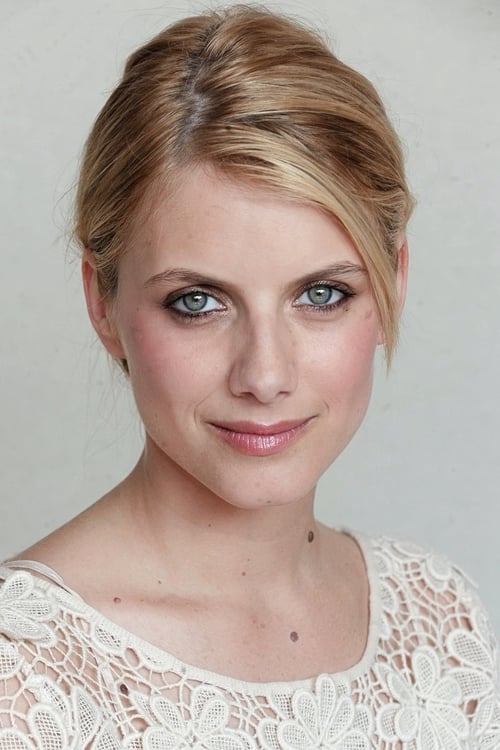The Business Trip (2008)
Género : Comedia
Tiempo de ejecución : 10M
Director : Sean Ellis
Sinopsis
A business man in his 30s, with an expense account, checks into a hotel, exchanging smiles and pleasantries with the desk clerk, a woman of beauty and style. Once in his room, he listens again to a voice message on his cell phone: his lover tells him she is breaking up with him; he is not spontaneous; she has found someone else; don't call. He throws his phone down. When he reaches beneath the bed to retrieve it, he finds a Polaroid photograph of a partially nude woman posed provocatively; it includes a phone number and a sexual question. He opens a beer and stares at the photo. If he calls, what then?
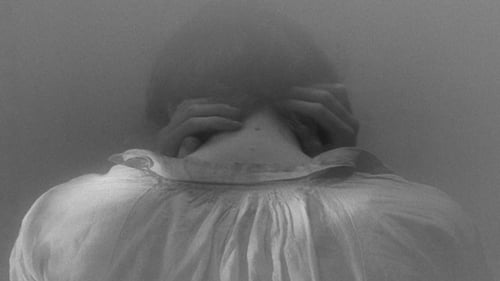
A woman sits alone on a chair at a table in a room on one of the top floors of an asylum. Bright spot lights dot the night, sometimes shining on her window. She sharpens pencils and writes on a page in a copy book. The pencil point often breaks under her fingers' force. She places broken points outside the window on the sill. A satanic figure is somewhere nearby, animated but of straw or clay, not flesh. She finishes her writing, tears the paper from the pad, folds it, places it in an envelope, and slips it through a slot. Is she writing to her husband? "Sweetheart, come." Written by

Short animated film featuring the song "Can't Go Wrong Without You" by His Name Is Alive.
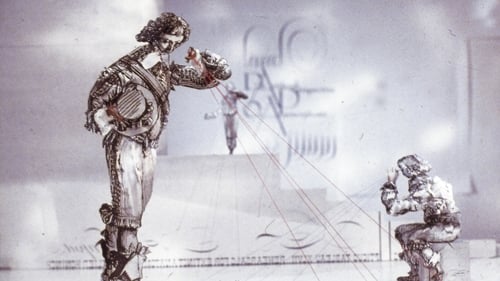
The Quays' interest in esoteric illusions finds its perfect realization in this fascinating animated lecture on the art of anamorphosis. This artistic technique, often used in the 16th- and 17th centuries, utilizes a method of visual distortion with which paintings, when viewed from different angles, mischievously revealed hidden symbols.

A porcelain doll’s explorations of a dreamer’s imagination.
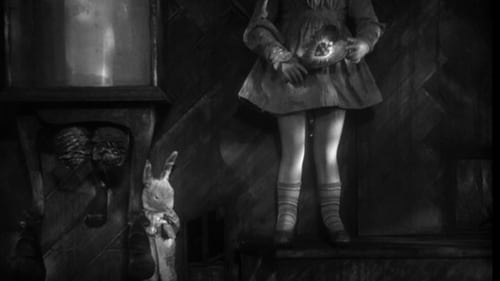
Stop-motion animated short film with a white ball, a rabbit, and a girl, and a voice singing "Are We Still Married".

Near an extraordinary chair with many legs, a hand is visible gripping an edge. The hand is weathered, the fingers cracked and scarred. The end of a rifle appears and a shot fires. The bullet is visible whirling through space; it caroms and then goes through a pine cone. A long spoon emerges from a drawer in the chair and stretches toward the hand. The bullet is on the spoon. Later, the hand holds the bullet between two fingers; another shot is fired.
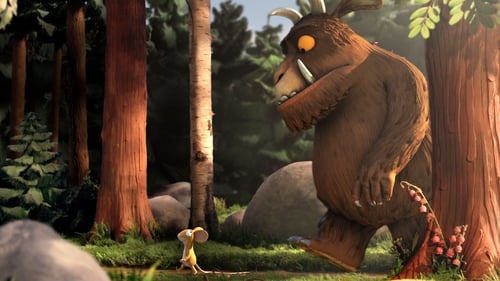
Adaptación animada en CGI de un clásico libro para niños. El protagonista es un ratón que supera los peligros del bosque con su astucia. (FILMAFFINITY)
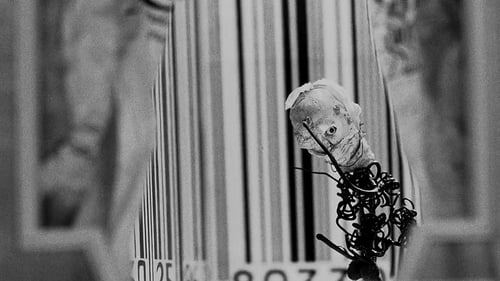
Stop-motion animated short film in which, among other things, a man made of wire looks malevolent.

A display at the strange and wonderful artifacts in a collection of medical curiosities.
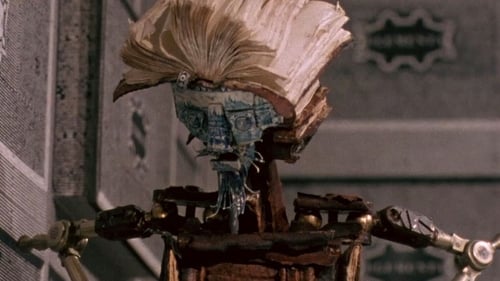
In Prague, a professorial puppet, with metal pincers for hands and an open book for a hat, takes a boy as a pupil. First, the professor empties fluff and toys from the child's head, leaving him without the top of his head for most of the film. The professor then teaches the lad about illusions and perspectives, the pursuit of an object through exploring a bank of drawers, divining an object, and the migration of forms. The child then brings out a box with a tarantula in it: the professor puts his "hands" into the box and describes what he feels. The boy receives a final lesson about animation and film making; then the professor gives him a brain and his own open-book hat.

With harpsichord music in the background, a dandy, seated at a table, plucks a quill pen from a ceiling full of them above him, dips it in ink, thinks, then draws a straight line down the page in front of him, out of which sprout six more quill pens, each held by a hand. The calligrapher moves all the hands and pens in unison, drawing an elaborate feathered wing, which comes to live, peeling off the page, and, now a quill pen, slips in to his hand. He tucks it behind his left ear.
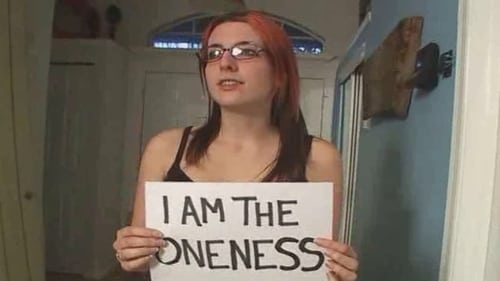
The Pollard family is calmly discussing their impending death by atom bomb when Mrs. Pollard recounts a dream in which she sensually bathes herself in the “Tears of Neglected Children”.

Enigmática historia contada en siete capítulos, cada uno iniciado con un cartel elíptico. Un hombre está en un apartamento, sale afuera y observa una catedral... cine experimental y surrealismo directo de la retorcida mente de los multipremiados Hermanos Quay, en éste su primer trabajo. (FILMAFFINITY)

'Amy, is narrated by a model (Liisa Repo-Martell) who’s painfully uncomfortable with her own body and “old woman’s” face. Astonishing closing image is a tightly composed telephoto shot on the start of a marathon race among young schoolgirls, dashing toward and then across the screen in ultra-slo-mo, and accompanied by a girls’ chorus hauntingly singing Brian Wilson’s God Only Knows. Widely eclectic lensing and looks in various media and in color and black-and-white flow nicely from one section to the next, aided by gifted editor Mark Karbusicky.' ~ Robert Koehler, Variety
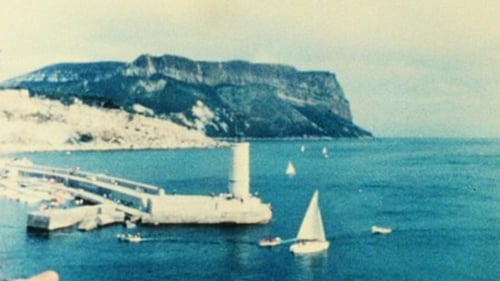
"I was visiting Jerome Hill. Jerome loved France, especially Provence. He spent all his summers in Cassis. My window overlooked the sea. I sat in my little room, reading or writing, and looked at the sea. I decided to place my Bolex exactly at the angle of light as what Signac saw from his studio which was just behind where I was staying, and film the view from morning till after sunset, frame by frame. One day of the Cassis port filmed in one shot." -JM

An experimental short film from Toshio Matsumoto featuring Mona Lisa.
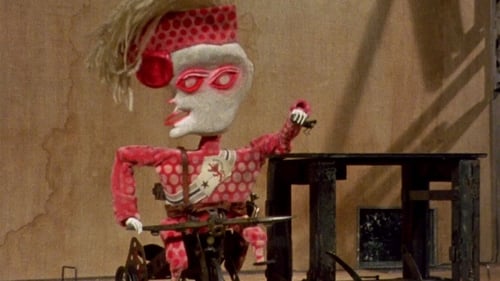
Stop-motion animated short film in which a puppet on a trike captures a puppet bird-man.

A puppet, newly released from his strings, explores the sinister room in which he finds himself.

This short film documents the daily life of the goings-on on Orchard Street, a commercial street in the Lower East Side New York City.

“When he shot Une seconde (4 min., 20 sec.), a video animation without computer graphics, Richard Angers tried to adapt Norman McLaren’s animation techniques to video shooting and editing. A long-term solitary task, in which images are moved by hand, centimetre by centimetre, in which one plays with the number of images per second, and in which the ±
pure quest for effects is more important than the message”. BLANCHARD, Louise. “Les vidéastes sont au ‘rendez-vous’”, Le Journal de Montréal, Montreal (9 February 1992), p. 38.


